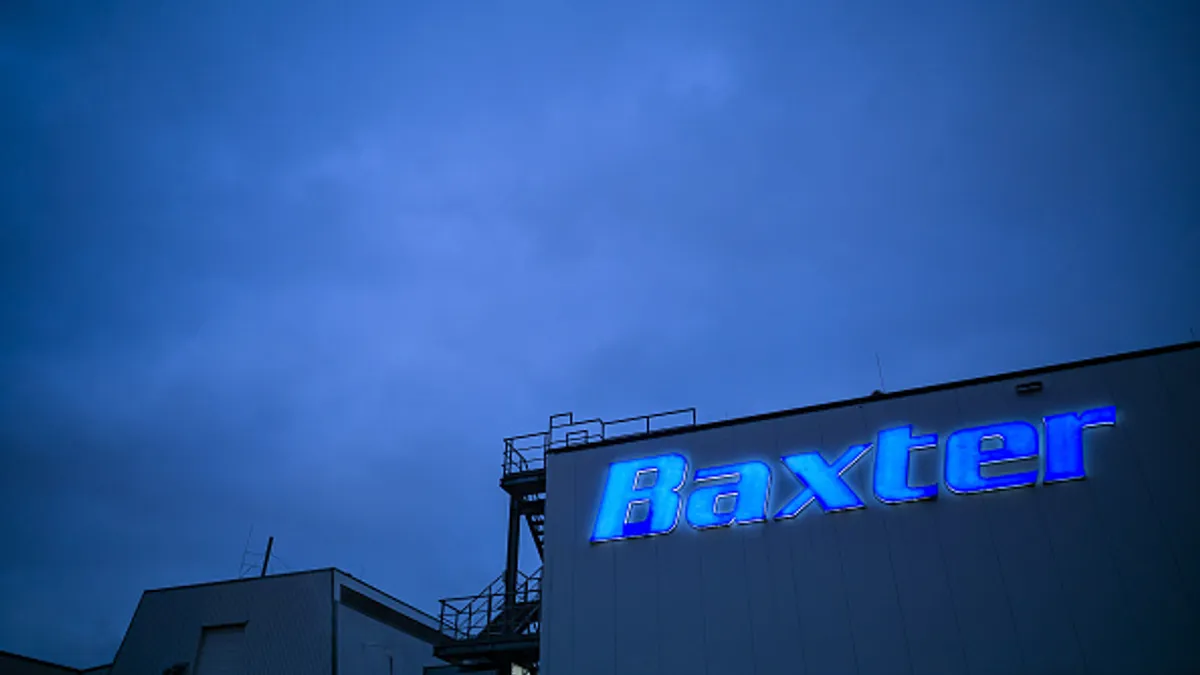Dive Brief:
- Improving availability of electromechanical components helped healthcare company Baxter International cut its backlog for Front Line Care products in half, according to an April 27 earnings call.
- The increase in components, including semiconductor chips, reduced the need for spot purchasing, enabling the healthcare company to lower costs while also driving more operational predictability, José Almeida, president, chairman and CEO, told analysts.
- Regardless of the improvements, Baxter continues to have an elevated backlog, which the company hopes to work down over the course of the year, Executive Vice President and Chief Financial Officer James Saccaro said.
Dive Insight:
Baxter has been seeing supply constraints for electromechanical components, used in items like smart infusion pumps, as well as other shortages from third-party suppliers for some time.
To help combat shortages, Baxter has been redesigning some of its boards and getting secondary raw material suppliers in place since 2022. Considering that “things are not 100% normal right now,” Baxter continues to drive a significant amount of initiatives within the company to continue the redesign of components that go on the boards.
“As we navigate through 2023, it will be very important that the company does not lose its focus in finishing what we started in semiconductor transformation and in the supplier chain resilience,” Almeida said. “But we feel cautiously optimistic that we have turned the corner when it comes to supply of components into our business.”
Health organizations have encouraged semiconductor manufacturers to prioritize medtech companies throughout the last few years. Trade group AdvaMed, for instance, called on the Biden administration in May 2022 to step in and help the sector, which competes with consumer electronic companies on limited stock.
In turn, many companies have had to adjust forecasts to accommodate chip shortages, leading to longer delivery timelines for items like sleep apnea devices, or in Baxter’s case, Sigma Spectrum Infusion Pumps, among other medical tools.
Meanwhile, Baxter continues to feel pressure from the rising supply chain costs that incurred in the second half of 2022 and that have continued into 2023.
“Some of our suppliers are still looking to sort of increase prices,” Saccaro told analysts. “But I would say, generally speaking, we have a fairly stable backdrop from a supply chain standpoint.”














